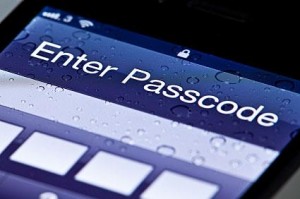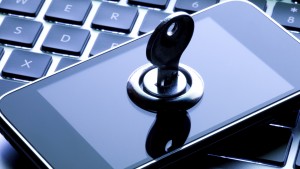 The Federal Reserve Board estimates that 87 percent of all American adults own a cell phone and 71 percent of those phones are Internet-enabled smartphones. The convenience of mobile access to the Internet means that more users are going to start shopping through their phones, and the numbers show that the trend is increasing. In 2012, smartphone users who used their phones for online banking was at 29 percent, which grew to 33 percent in 2013 and then to 39 percent in 2014. It is time that consumers took their mobile computing security seriously.
The Federal Reserve Board estimates that 87 percent of all American adults own a cell phone and 71 percent of those phones are Internet-enabled smartphones. The convenience of mobile access to the Internet means that more users are going to start shopping through their phones, and the numbers show that the trend is increasing. In 2012, smartphone users who used their phones for online banking was at 29 percent, which grew to 33 percent in 2013 and then to 39 percent in 2014. It is time that consumers took their mobile computing security seriously.
 Paying For Products Online Is Going Mobile
Paying For Products Online Is Going Mobile
In 2014, smartphone users who used their phones to make mobile payments for products or services was at 28 percent. Of these payments, 68 percent were to pay recurring monthly bills. The number of smartphone users who make point-of-sale purchases with their smartphones each year has remained steady at around 40 percent. But as mobile payment options become more popular, that number will start to rise.
The Problems with Paying Through Your Mobile Phone
Smartphone users often believe that using their phone is safer for paying bills, bank transfers and buying products rather than a computer. The truth is that your smartphone uses the same Internet as your desktop, and you have to be vigilant to keep your information safe.
When you pay a utility bill or buy a product through your smartphone, you are exposing your bank and vendor information to anyone who may be trying to tap into your connection to steal your data. While smartphones may be convenient to pay bills and buy products online, you still need to protect yourself from people who are on the lookout to steal personal identities and financial information.
 Protect Yourself When Using Your Smartphone
Protect Yourself When Using Your Smartphone
According to Bank of America, securing your smartphone screen with a strong password makes it difficult for criminals to get into your phone when connected to the Internet. Some banks and online vendors offer the ability to log into your accounts without having to expose your personal information. You should consider starting accounts with these types of business websites.
U.S. News and World Report recommends turning off the option on your phone that automatically connects to the closest cellular or WiFi Internet connection to prevent connecting to unsecured networks. You should also change your passwords frequently for all of your accounts to prevent criminals from becoming familiar with your accounts.
As more people start using their mobile phones to pay bills and buy products, the need to protect your phone is essential. Global IT offers a full computer security package with mobile phone protection services to keep your smartphone protected from criminals. The package protects against harmful malware and viruses, and covers multiple devices from your mobile phone to your computer or tablet.
